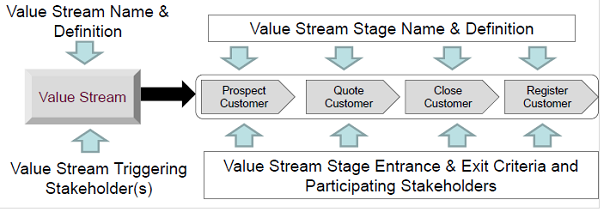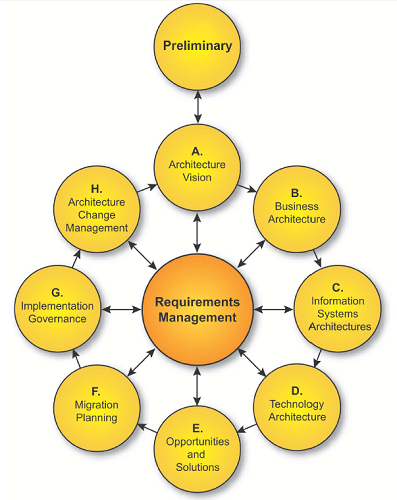Cloud, big data, and analytics are disruptive technologies that are affecting almost every enterprise across multiple industries. Companies are trying their best to leverage these new capabilities to gain advantage in a highly competitive market place. Companies that do not evolve to leverage these capabilities may be left behind and could even become unviable in the near future. Ubiquitous data from consumer smartphone usage can provide valuable insights for companies, but ubiquitous data comes with set of challenges viz., storing, managing, and analyzing the large volumes of data. Cloud and big data technologies are positioned as the panacea to leverage and analyze ubiquitous consumer data. Of course, there has been fair share of humor that directly takes on hype around cloud and big data, including server Dilbert cartoons ( http://dilbert.com/strip/2012-07-29 ). How should a business architect deal with this?
Consider the following example from The Business Architecture Guild’s BizBOK depicting value stream stages (level 3 capabilities) “prospect customer”, “quote customer”, “close customer” and “register customer”. People, process, and technology in turn support each capability. Let us apply this value stream to a large company that is attempting to upsell products and services to their customer base. Before cloud and big data technologies became popular, the business team would have found it very hard to get a 360-degree view of its customers. Business teams may have run from pillar to post to get different slices of information from multiple IT and business departments in an attempt to cobble together a holistic view of customer. However, cloud and big data technologies provide the foundation for valuable insights and build a 360-degree view of the customer, which can support the “prospect customer” capability more effectively. By using cloud and big data technologies, it is possible to leverage historic as well as real time streaming information and develop precise insights into customer behavior and needs. From a business architect perspective, the technology solution supporting “prospect customer” has evolved and will continue to evolve.

Figure 1 – Essential aspects of value stream*
Source: Business Architecture Guild Body of Knowledge (BIZBOK™) – Release 3.0
It is useful to remember that business strategy and goals drive technology solutions, though emergence of newer technologies can inform drafting of business strategy and goals. Agile enterprises are able to identify and exploit emerging technologies effectively. TOGAF ADM life cycle (Figure 2) depicts this cyclical relationship.
As per TOGAF® 9.1
The phases of the ADM cycle are further divided into steps; for example, the steps within the architecture development phases (B, C, D) are as follows:
- Select reference models, viewpoints, and tools
- Develop Baseline Architecture Description
- Develop Target Architecture Description
- Perform gap analysis
- Define candidate roadmap components
- Resolve impacts across the Architecture Landscape
- Conduct formal stakeholder review
- Finalize the Architecture
- Create Architecture Definition Document
The target architecture for phase D must reflect major evolutions in technology solutions, around cloud and big data in afore mentioned example.

Figure-2 ADM lifecycle TOGAF 9 **
Source: TOGAF® 9.1
Conclusion
Technology is continuously evolving, throwing up both opportunities and challenges. It is important to remember the bottom line: business strategy and goals drive business capabilities, which in turn drive technology solutions (not the other way around). However, a good understanding of benefits offered by cloud and big data technologies will help the business architect in developing business blueprints.
References:
* Business Architecture Guild
** TOGAF® 9.1

















